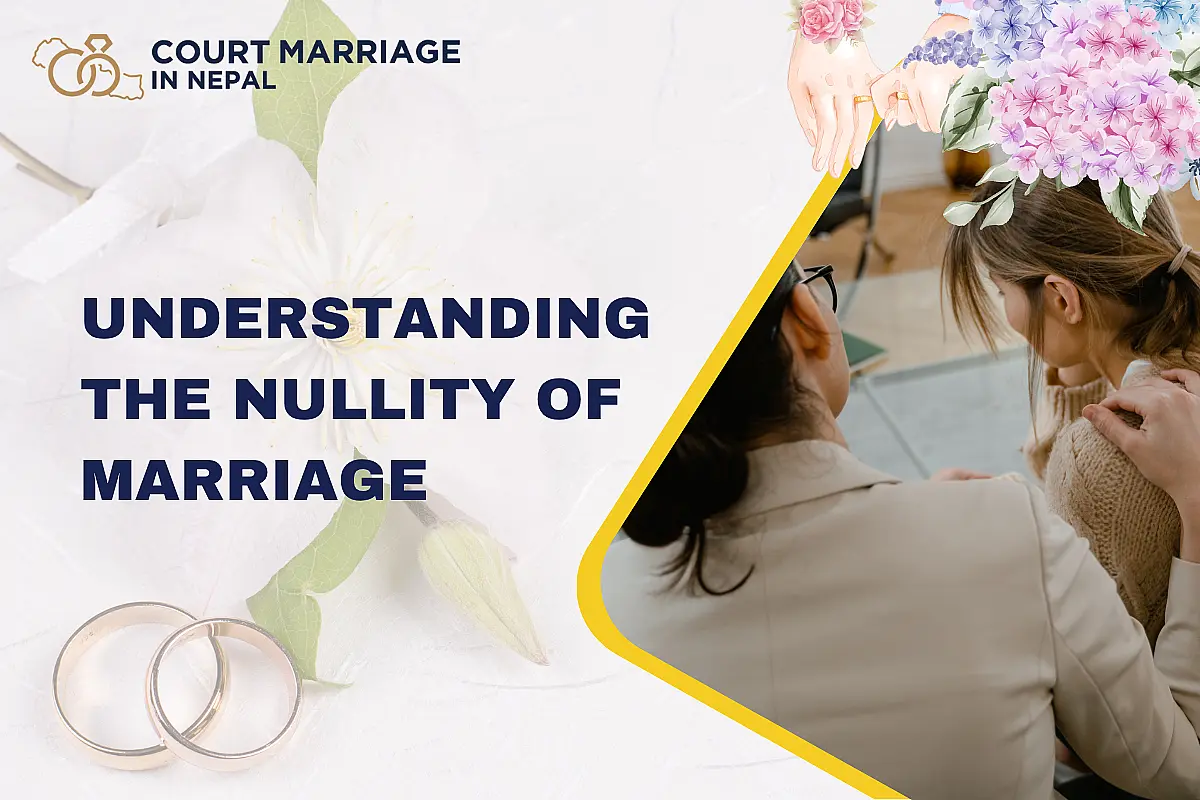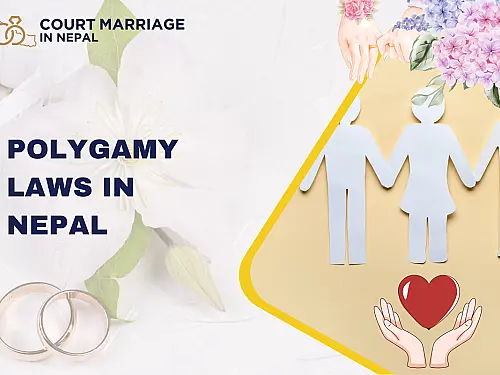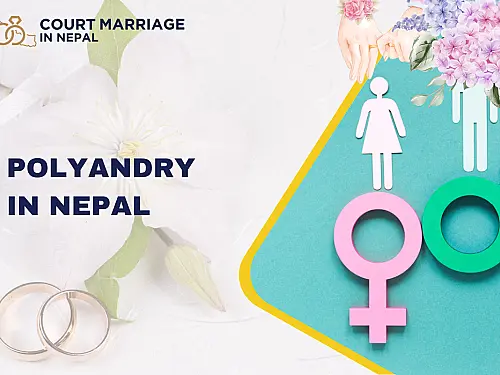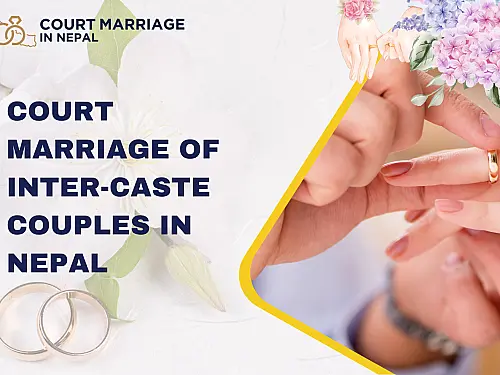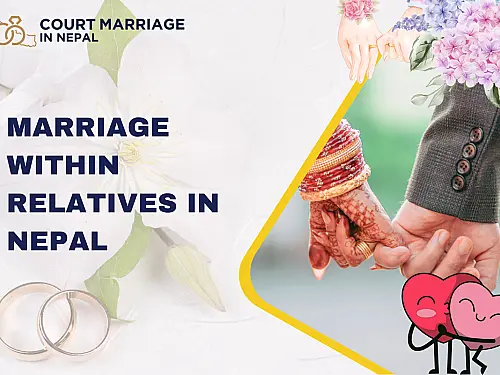Table of Contents
Introduction
Marriage is a significant social and legal institution governed by specific laws to ensure its validity and recognition. In Nepal, marriage is subject to legal provisions that define its validity, age requirements, and conditions under which it may be declared void or voidable. Understanding these legal aspects is crucial to avoid complications and ensure compliance with Nepalese law.
The Nepalese legal framework classifies marriages into two categories: void and voidable. A void marriage is one that is legally invalid from the beginning, while a voidable marriage remains valid until one party takes legal action to annul it. This article explores the legal aspects of marriage in Nepal, including age requirements, punishments for child marriage, and the legal consequences of void and voidable marriages.
Legal Age for Marriage in Nepal
The legal marriage age in Nepal has evolved over time. As per the current law:
- Both males and females must be at least 20 years old to legally marry.
Previously, the law allowed marriage at 18 with the consent of a guardian, while 20 was the minimum age for marriage without consent. However, this provision has changed, and now, any marriage involving individuals under 20 is considered illegal and void.
In comparison, the legal age for marriage in India is:
- 21 years for males
- 18 years for females
Consequences of Child Marriage in Nepal
Child marriage is a serious offense under Nepalese law. It is considered a violation of children's rights and carries strict legal consequences for those involved in facilitating or conducting such marriages.
Punishments for Child Marriage
- Marriage below 14 years of age:
- The person who arranges or facilitates the marriage can be imprisoned for 3 months to 1 year and fined up to NPR 5,000.
- Marriage between 14 and 18 years of age:
- The person responsible for the marriage can be imprisoned for up to 6 months and fined up to NPR 10,000.
- Marriage involving individuals below 20 years of age:
- If a marriage is conducted where either the male or female has not reached 20 years, the offender can be imprisoned for up to 6 months and fined up to NPR 10,000.
- General punishment for child marriage:
- Any individual found guilty of child marriage can face imprisonment for up to 3 years and a fine of up to NPR 30,000.
These laws ensure that underage marriages are strictly prohibited and legally unrecognized in Nepal.
Void vs. Voidable Marriages in Nepal
Void Marriages
A void marriage is legally considered nonexistent. It holds no legal recognition, and no divorce is needed to dissolve it because it was never valid in the first place.
Situations Where a Marriage is Void in Nepal
- Child Marriage – If either spouse is under 20 years of age, the marriage is void and punishable.
- Bigamy (Multiple Marriages) – If a person is already married and enters into another marriage without legally dissolving the first, the second marriage is automatically void.
- Incestuous Marriage – Marriage between close blood relatives (such as siblings, first cousins, or immediate family members) is void under Nepalese law.
- Forced Marriage – If a marriage occurs without the free consent of both parties, it is considered void.
Voidable Marriages
A voidable marriage is legally valid unless one of the spouses files for annulment in court. If no action is taken, the marriage remains intact.
Situations Where a Marriage is Voidable in Nepal
- Underage Marriage – If either spouse was underage at the time of marriage but continues the marriage after reaching the legal age, it remains valid. However, if they wish to annul it, they must take legal action.
- Mental Incapacity – If one spouse was of unsound mind at the time of marriage and couldn’t understand the commitment, the marriage can be challenged.
- Hidden Health Conditions – If a partner was unaware of the other having an incurable disease (such as HIV or Hepatitis B) or infertility, they can file for annulment.
- Misrepresentation & Fraud – If key information was concealed (such as prior marriages, criminal records, or serious medical conditions), the deceived spouse can challenge the marriage.
- Pregnancy by Another Partner – If a woman was pregnant by another man at the time of marriage and did not disclose it, the husband can file for annulment.
Legal Process for Annulment or Challenging a Marriage
1. Filing a Case in Court
- The affected party must file a petition at the District Court.
- Necessary documents, such as birth certificates, marriage certificates, and any proof of coercion or misrepresentation, must be submitted.
2. Court Proceedings & Decision
- The court reviews evidence and determines whether the marriage is void or voidable.
- If the marriage is void, no further legal action is required, as it was never valid.
- If the marriage is voidable, the court grants annulment upon request.
Conclusion
Understanding Nepal’s marriage laws is crucial to ensuring legal recognition and avoiding complications. Child marriage is strictly prohibited, and marriages violating legal or ethical standards can be declared void or voidable.
By following legal guidelines and ensuring that all marriage conditions are met, individuals can protect their rights and prevent legal disputes. If a marriage is questionable, seeking legal assistance can help resolve matters effectively.
At Court Marriage In Nepal, a registered law firm operating as Court Marriage In Nepal Pvt. Ltd., we specialize exclusively in Court Marriage Nepal. As the first law firm in Nepal dedicated to court marriage services, we assist both Nepali citizens and foreign nationals with the court marriage registration process in Nepal, including complete legal support for court marriage registration for foreign citizens in Nepal. As a trusted marriage firm in Nepal and a licensed law firm in Nepal, we ensure a smooth, lawful, and stress-free experience. Contact us today for confidential assistance with court marriage registration in Nepal.

